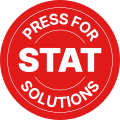Background:
Drug shortages are a frequent challenge in current clinical practice. Certain drugs (e.g., protamine) lack alternatives, and inadequate supplies can limit access to services. Conventional protamine dosing uses heparin ratio-based calculations for heparin reversal after cardiopulmonary bypass and may result in excess protamine utilization and potential harm due to its intrinsic anticoagulation. This study hypothesized that a fixed 250-mg protamine dose would be comparable, as measured by the activated clotting time, to a 1:1 (1 mg for every 100 U) protamine-to-heparin ratio-based strategy for heparin reversal and that protamine would be conserved.
Methods:
In a single-center, double-blinded trial, consenting elective adult cardiac surgical patients without preexisting coagulopathy or ongoing anticoagulation and a calculated initial heparin dose greater than or equal to 27,500 U were randomized to receive, after cardiopulmonary bypass, protamine as a fixed dose (250 mg) or a ratio-based dose (1 mg:100 U heparin). The primary outcome was the activated clotting time after initial protamine administration, assessed by Student’s t test. Secondary outcomes included total protamine, the need for additional protamine, and the cumulative 24-h chest tube output.
Results:
There were 62 and 63 patients in the fixed- and ratio-based dose groups, respectively. The mean postprotamine activated clotting time was not different between groups (−2.0 s; 95% CI, −7.2 to 3.3 s; P = 0.47). Less total protamine per case was administered in the fixed-dose group (−2.1 50-mg vials; 95% CI, −2.4 to −1.8; P < 0.0001). There was no difference in the cumulative 24-h chest tube output (difference, −77 ml; 95% CI, 220 to 65 ml; P = 0.28).
Conclusions:
A 1:1 heparin ratio-based protamine dosing strategy compared to a fixed 250-mg dose resulted in the administration of a larger total dose of protamine but no difference in either the initial activated clotting time or the amount postoperative chest-tube bleeding.
What We Already Know about This Topic
Heparin is used in cardiac surgical patients to provide anticoagulation during cardiopulmonary bypass. After cardiopulmonary bypass, patients are given protamine to reverse the effects of heparin to avoid postoperative bleeding.
There is considerable between-institution variability in how much protamine is administered after cardiopulmonary bypass. Although protamine is very effective in reversing the bleeding effects of heparin, administering too much or too little protamine can cause postoperative bleeding.
What This Article Tells Us That Is New
This is a single-center randomized trial of cardiac surgical patients. The objective of the study was to compare adequacy of heparin reversal in patients given protamine after cardiopulmonary bypass using two different approaches to protamine dosing. The protamine dose approaches were a “fixed” approach (250-mg protamine dose) and a “ratio-based” approach (1 mg protamine:100-U heparin dose). The study’s primary outcome was postprotamine activated clotting time, and one of the secondary outcomes was 24-h chest tube output.
This study found no significant difference in the post–cardiopulmonary bypass activated clotting time in the “fixed” versus “ratio-based” protamine groups and no difference in chest tube output. An additional finding was that patients who were in the “fixed” dose group received significantly lower intraoperative protamine than the group who received the ratio-based intraoperative protamine dosing.
The study’s findings suggest that a lower protamine dose than that derived from the 1 mg protamine:100 U heparin strategy may be effective for heparin reversal after cardiopulmonary bypass both in terms of bleeding risk and with respect to concerns not to waste doses of protamine.

